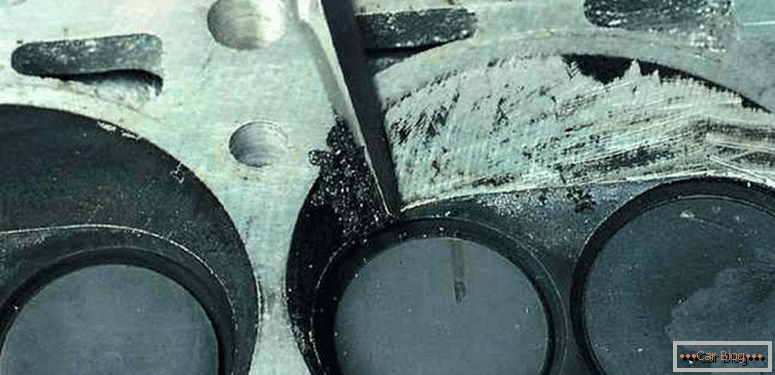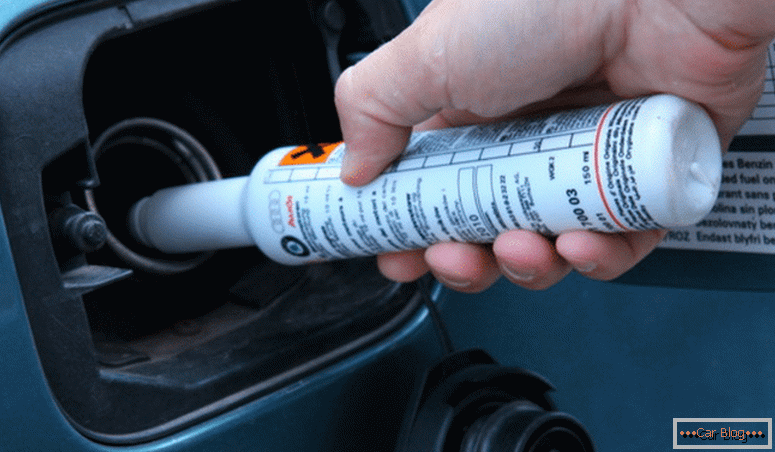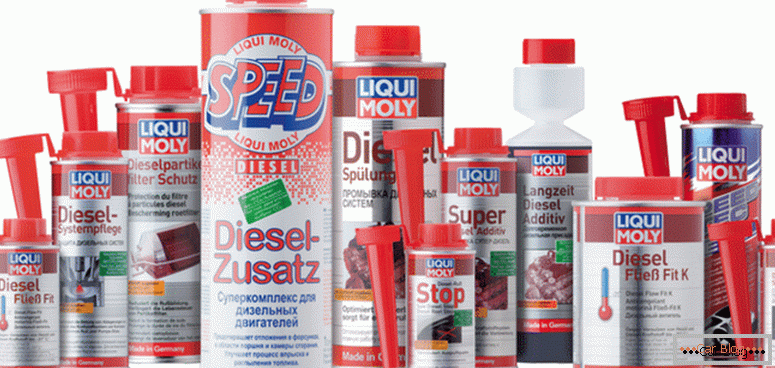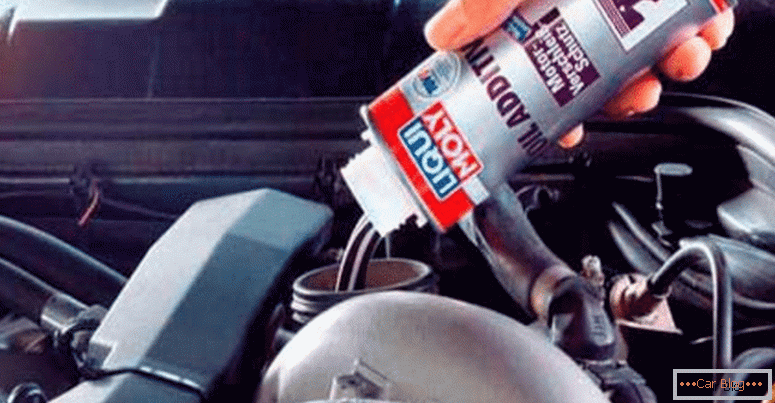Automobile "chemistry" is not limited to car shampoos or polishes. In specialty stores you can find various additives for restoring the engine or other additives to the fuel or to the oil.
However, not all drivers definitely have a positive attitude towards the infusion of these fluids into their car’s systems. Consider what are the additives, and what they can affect.
Content
- 1 Antifriction additives
- 2 Fuel Additives
- 3 Filler Dehydrators
- 4 Oil stabilizers
- 5 General Information on Additives
Antifriction additives
Such additives еще называют реставрирующими. В их задачу входит незначительная коррекция или реставрация корпусных элементов двигателя, который имеет большой пробег. Считается, что они латают образовавшиеся во время эксплуатации трещинки и расколы. Таким действием increased compression in the motor, and power returns to the design parameters.

Nagar in the combustion chamber
Also the creators of these additives promise cleaning the engine from accumulated carbon and dirt inside the structure. In the future, the engine should be cleaned by the assurance of the inventors of this "chemistry" to remain for a long time in a pure state. Also, engine oil additives should reduce the coefficient of friction between the interacting surfaces. One of the most popular of these tools among motorists is the "Forum".
You need to know that during the operation of the car all the oils lose their characteristics set by the manufacturer.
Particularly noticeable decline in performance properties in the initial period after the update oil and oil filters. Therefore, the addition of new portions of additives is intended to compensate for quickly reagents, which are in the oil initially.
Mild cleaners are designed to restore the operability of the valve mechanism and clean the crankcase ventilation system. They also save valve lifters from sticking, remove carbon from the piston rings and help restore their fit and mobility. Such additives are poured into the engine, or rather, into the lubricating system of high-mileage motors.
New power plants do not need additives added to engine oil. For these engines will be enough time to carry out an oil change.
It is advisable to use additional reagents for motors with a range of approximately 100,000 km. They can already accumulate dirt or soot, which must be removed.
See also: Why do you need a corrugation of the muffler and how to change itFuel additives
Additives to gasoline are used when it is necessary to clean the fuel system from accumulated dirt. Manufacturers of such products additionally promise significant savings on consumption. However, in practice this fact is not always confirmed, especially when the reduction is announced up to 90%.

Fuel additives
Fuel system cleaners play the role of catalysts in the combustion of the mixture, acting at the micro level, getting rid of soot. They also save the engine from poor-quality fuel and clean all elements of the fuel system.
Such additives recommended when power drops or after dirt has entered the system. After all, this can happen even at proven gas stations. Frequent use of this drug is not recommended. The best application is the interval of one and a half to two years.
Additives for diesel engines are also used. The most popular is the system "Suprotek". It cleans the chamber of coke and helps burn off excess organic matter.
Filler Dehydrators
The enemy of the fuel system of any car is water. Especially in the winter months, it can freeze in the channels of the fuel system and block the passage for gasoline or diesel fuel. There are additives that are added to the fuel tank to combat excess moisture.

Variety of additives
After all, unnecessary condensate can accumulate in the tank during the entire life of the vehicle. Additionally, such chemical components for fuel lower the level of its freezing. Dehydrating additives help fight the premature wear of motor mechanisms.
Manufacturers assure that the presence of such additives in the fuel contributes quick start power plant in the cold season, and also protect against corrosion of the elements of the fuel system of the engine.
Oil stabilizers
These special additives are also called anti-smoke. They should help maintain the viscosity of the oil at elevated temperatures. Additionally reduce the formation of coke inside the cylinders. Stabilizing the viscosity helps prevent too flowing oil from entering the combustion chamber. This type of chemical reagents reduces engine noise, smoke, the formation of oil burn.

Oil additives
You need to know that when a gray smoke appears from the exhaust pipe, no additives will save the engine. In this case, only the repair and the complete elimination of the system malfunction is necessary. Additives can only temporarily reduce the amount of smoke produced. They can add unscrupulous car sellers before selling it.
See also: Possible reasons why the car does not startGeneral Information on Additives
Oil additives are poured into the system after changing the oil and filters. Fuel chemical additives are poured almost into an empty tank. The interval between additions of additives depends on the life of the car and the recommendations of the manufacturer of "chemistry".
You can not abuse these additives. Since this may have the opposite effect. Before use, you must read the instructions for such an additive.



